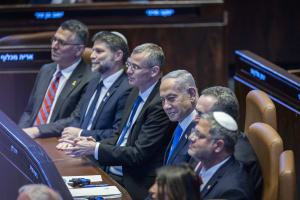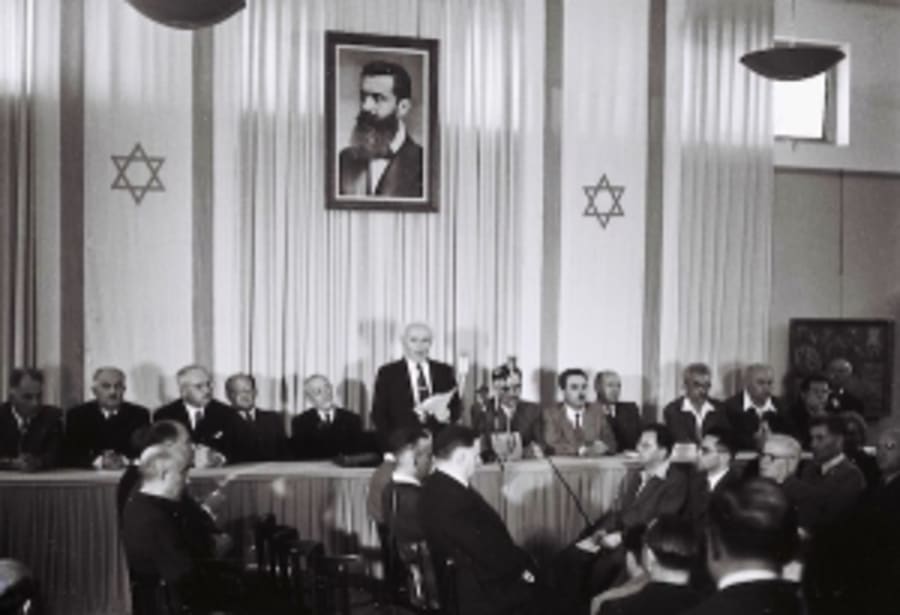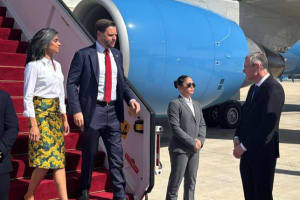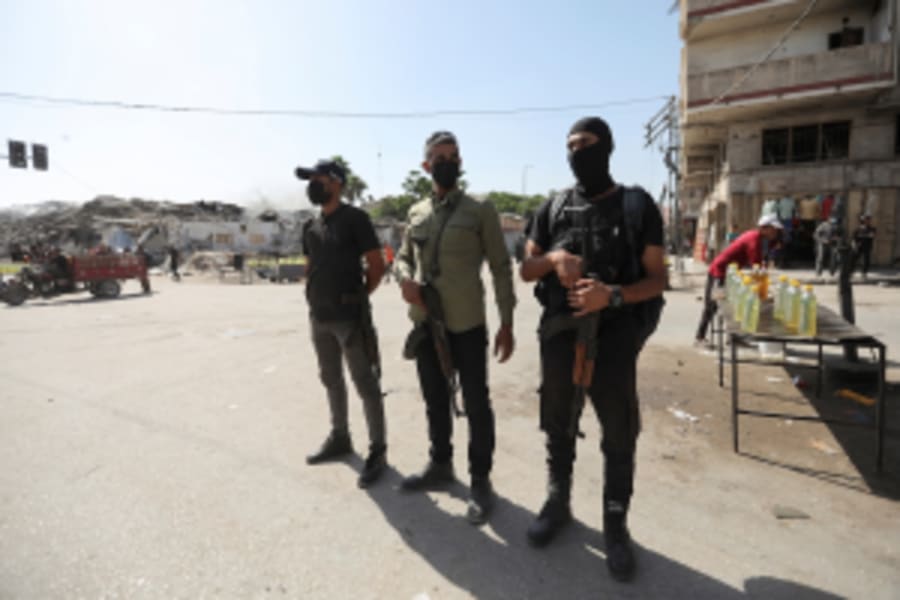Opening of Knesset winter session descends into fight over judicial reform after Speaker Ohana snubs Supreme Court president
Netanyahu acknowledges court president but demands respect for gov't as well

If the opening of the Knesset’s winter session is any indication, Israel is in for another highly contentious legislative period.
The first session on Monday already descended into shouting and mutual accusations of illegitimacy, after Knesset Speaker Amir Ohana refused to address Supreme Court President Isaac Amit by that title, instead merely referring to him as a “judge.”
President Isaac Herzog pointedly corrected him in his speech, before Prime Minister Benjamin Netanyahu acknowledged the reality that Amit was now president, but in turn also called for the judicial system and the opposition to recognize the government’s legitimacy.
The background to this is the ongoing desire in the coalition to push through parts of the judicial reform and the heated opposition and protests against it.
The coalition argues that the judicial system has too much power while actively trying to curb the powers of the democratically elected government, while the opposition parties accuse the government of removing any limitations on its authority in an anti-democratic way.
Large parts of the coalition do not recognize Amit as the court president, after he was elected in direct opposition to attempts by Justice Minister Yariv Levin to change the election process and nominate another, more conservative judge.
Ohana, therefore, did not invite Amit, as well as Attorney-General Gali Baharav-Miara, whom the coalition wants to dismiss, to the Knesset speech by U.S. President Donald Trump two weeks ago.
Ohana’s new snub of Amit in his opening speech on Monday caused angry chants by opposition MKs. In the end, the speaker expelled several lawmakers from the Yesh Atid and Democrats parties.
In his speech, Ohana expressed “deep concern for democracy and for the status of the legislative branch,” bemoaning the “trampling of the Knesset by the judicial system [as] a severe blow to Israeli democracy.”
“It is my public duty as Knesset Speaker to warn the public – your ballot in the ballot box is being worn down. It is losing power and meaning because of the conduct of the judicial system,” he summed up one of the coalition’s main concerns.
“I believe this war has proven that when we act together there is no limit to achievement… We are open to dialogue with the judiciary, which until now has refused to talk or agree to compromises, even the most moderate ones,” Ohana said.
With the speaker sitting beside him, Herzog then took the podium, foregoing his planned speech to defend the judiciary: “My heart is bleeding, because there's a difference between a principled debate, which is certainly legitimate, and contains legitimate opinions, versus lack of courtesy, harming human dignity, harming the dignity of the other branches of government, and harming the dignity of Israel's judges.”
Noting that two soldiers and a released hostage body were being buried that day, Herzog said, “we cannot ignore [the direction] in which we are dragging ourselves as a nation, strangling each other and behaving with disrespect.”
“I am not willing to accept a situation of lack of basic respect, as the people of Israel, instead of dealing with the truly important issues, deal with the question of whether the President of the Supreme Court will be invited or not, and under which title.”
Herzog called on the coalition to determine outstanding issues through the legislation of a new basic law, “But what does that have to do with basic lack of courtesy and breaking codes and traditions that have existed for decades?”
“We can behave with restraint, courtesy and responsibility, or we can continue to poke each other's eyes out, while our combatants are in Gaza and their families are on the home front. So I am crying out to high heaven here, and saying to everyone, it's enough,” said President Herzog.
After him, Netanyahu rose to speak, acknowledging that “Isaac Amit is the President of the Supreme Court, that is a fact… but I am the Prime Minister of Israel, those are my ministers, this is the Knesset speaker and these are the MKs – that is also a fact.”
“These facts need to be recognized from every side, not just one side.”
This statement drew angry reactions from some members of Netanyahu’s coalition, Channel 12 reported. Justice Minister Levin was cited as telling Likud colleagues later that if Netanyahu recognizes Amit, “let him allow him to appoint a state inquiry committee,” which is a demand from the opposition that Netanyahu has rejected.
The prime minister continued to call for unity in the nation, noting that it “will never be absolute – but as I told our enemies, do not mistake us; at the decisive moment we will stand together like a fortress.”
Netanyahu called for compromises and substantial debates but “not with violence and threats of murder against elected officials, the prime minister and his family, and ministers’ families.”
Touching on several other topics in his speech, Netanyahu reiterated that “The relationship with the U.S. has never been as close and intimate as it is now.”
Regarding a new IDF conscription law, the prime minister vowed to present a new proposal in this Knesset session, which will “enlist 10,000 Haredim.”

The All Israel News Staff is a team of journalists in Israel.
You might also like to read this:
















